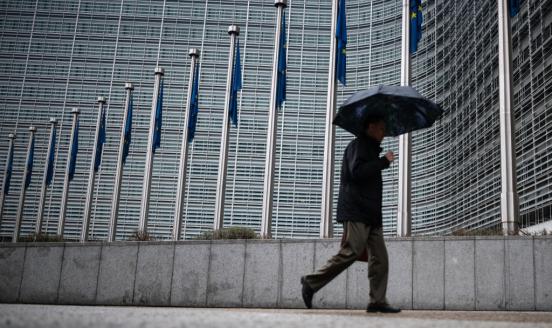Role of national structural reforms in enhancing resilience in the Euro Area
At this event Gita Gopinath, Chief Economist at the IMF will discuss the role of national structural reforms in enhancing resilience in the Euro Area.
Speakers
Romain Duval
Assistant Director, Research, International Monetary Fund,
Maria Demertzis
Senior fellow
Gita Gopinath
Chief Economist, International Monetary Fund
Shekhar Aiyar
Non-resident fellow
video & audio recordings
summary
The event started with the presentation of an IMF paper titled Strengthening the Euro Area: The Role of National Structural Policies in Building Resilience. Shekhar Aiyar, Division Chief at the IMF, first made the remark that inspecting output and employment data across the EU, countries have diverged markedly in their performance. One of the reasons for this divergence is that due to structural dissimilarities in the economies, countries have responded differently to shocks. Recessions in euro area economies have been both more severe and more frequent relative to other advanced economies since the start of the monetary union. Structural reforms can help build economic resilience.
There are two types of structural reforms: union-wide architectural changes, and national structural reforms. This paper focuses on the latter, quantifying the effects of product market reforms, labor market reforms, and reforms to corporate insolvency regimes. The authors find that more stringent labor and product market regulations are associated with reduced resilience on average and with weaker resilience to major recessions. Furthermore, higher-quality corporate insolvency regimes are associated with lower misallocation of inputs and more efficient capital allocation.
In addition, Romain Duval, senior advisor at the IMF, discussed the following points:
- Structural reforms have a disproportionate impact on resilience for members of a monetary union.
- Less flexible economies are more sensitive to shocks, including fiscal policy shocks – but fiscal space is key to any policy effectiveness.
- National structural reforms can improve monetary transmission and reinforce architectural reforms.
- National and EU-wide reform should go hand-in-hand to strengthen resilience of the Euro area.
Returning to the discussion, Gita Gopinath, the IMF Economic Counsellor and director of research, elaborated on the political viabilities of structural reforms. There is no one-size-fits-all approach; the two important principles are the adaptability of the labor market to cyclical conditions, and to ensure there is employee protection and a mechanism for employees to find new jobs.
Discussing the linkage between exchange rate flexibility and the euro zone, Gopinath remarked that because of adjustment in prices, there were countries that gained real exchange rate competitiveness (e.g. Spain). On the other hand, the countries that did not gain are the ones that are not very competitive. The paper highlights the importance of reforms, an area where not much progress was seen. Particularly in a period when the risks are high, it is important for countries to undertake structural reforms at the national level.
Discussing the architecture of the euro zone, Gopinath stressed the importance of capital markets union. The necessary reforms are better transparency, a common oversight authority, and minimum standards for corporate insolvency. In order for the euro to become a global currency, an important requirement is to produce a safe asset in the currency, something that a capital markets union would help deliver.
Speaking of the global landscape, Gopinath listed US-China trade tensions, the possibility of a no-deal Brexit, and high levels of private and public debt as major risks. Accounting for all the existing and possible tariff measures between U.S. and China, the IMF estimates that global growth will be reduced 0.5 percent in 2020.
Notes by Tianlang Gao








